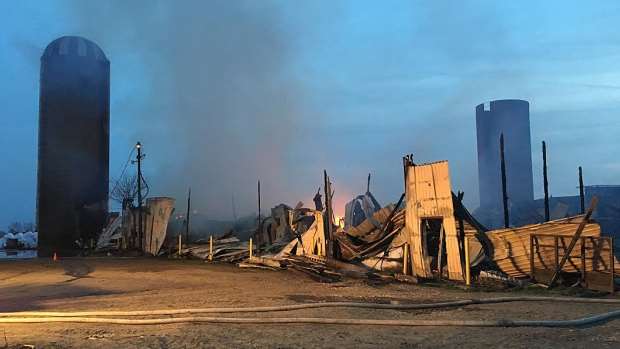Jobin Farms suffered $1 million in damages in April
By Diego Flammini
Assistant Editor, North American Content
Farms.com
A Windsor-area farm family has started rebuilding after a fire in April caused about $1 million in damages.
Phil Jobin of Jobin Farms said in addition to the $2 million facility, new farming methods will be employed to reduce the risk of another fire.
"Before, in our barn, for instance, we used to bed two to three times a day with straw. With the new facilities, we bed once a week with sand. So you're using non-combustible materials," Jobin told CBC.

The afteramth of a fire at Jobin Farms in April.
Photo: Dale Molnar/CBC
A new barn is also being built on clay, and will be about two metres above grade. This allows for manure to flow to a new storage tank.
Construction on the barn begins October 1.
Jobin said the farm should be running by June 2017, but there’s still a lot of work ahead of them.
"It's coming together. A lot of planning, a lot of preparation that has to go into the new farm, because everything's going to be state-of-the-art and up to today's environmental codes," he told CBC.
The fire on April 18 caused about $1 million in damages and killed 100 cows.
It was caused when straw built up on the shredding machine’s muffler and engine.